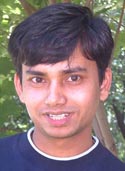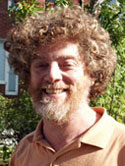SWEDISH SOUTH ASIAN STUDIES NETWORK
Department of Microbiology, Tumor and Cell Biology (MTC), Karolinska Institutet Medical University, Stockholm
Postal address: Box 280, SE-171 77 Stockholm, Sweden
Visiting address: Nobels Väg 16, Solna
Fax: +46 (0)8 30 42 76
Web page: http://ki.se/ki/jsp/polopoly.jsp?d=10961&l=en&fromnode=11284
Contact person: Professor Ute
Römling,
Leader of the research group on Multicellular
behavior in Enterobacteriaceae,
phone: +46 (0)8 5248
7319. Web
page about Prof Römling and her research group.
Prof. Römling is also Deputy Head of the Dept. of Microbiology, Tumor
and Cell Biology, and co-ordinator of a European Commission funded
project at MTC, called IMO-Train. This project
makes it possible for 10 young bright researchers from other countries
to do their PhD training in Sweden. IMO stands for ”Infection
models beyond cell culture”. More
information about IMO-Train.
The MTC department consists of three Research Nodes:
– Cell and Tumor Biology, incl. Biomedical Ecology
– Immunology
– Infection
Research connected to South Asia
 In
November 2005 Professor Ute Römling and
her research group on ”Multicellular behavior in Enterobacteriaceae”
within the research node field of Biomedical Ecology received SEK 1 million as a two-years grant (2006-07) project coordinator)
from Sida's Developing Country Research Council for a project titled
”Role of Biofilm on the Survival and Spread
of Toxigenic Vibrio cholerae and Salmonella enterica in the Natural
Aquatic Environment of the Bay of Bengal. More
information about the Sida grants 2005.
In
November 2005 Professor Ute Römling and
her research group on ”Multicellular behavior in Enterobacteriaceae”
within the research node field of Biomedical Ecology received SEK 1 million as a two-years grant (2006-07) project coordinator)
from Sida's Developing Country Research Council for a project titled
”Role of Biofilm on the Survival and Spread
of Toxigenic Vibrio cholerae and Salmonella enterica in the Natural
Aquatic Environment of the Bay of Bengal. More
information about the Sida grants 2005.
The project was carried out by the PhD candidate Mohammad
Abdul Kader (photo to the right).
Project abstract: Vibrio cholerae and Salmonella
Typhi are major world-wide pathogens causing diseases due to inefficient
hygienic standards. For both pathogens, it is hypothesized that
biofilm formation in aquatic environments is a mode of transmission
and persistence. Thus to understand disease outbreaks better we
want to investigate the role of biofilm formation in the persistence
and ecological niche occupation of the water-born pathogens, Vibrio
cholerae and Salmonella Typhi in natural aquatic habitats.
Professor Roland Möllby is also working in the Dept. of Microbiology, Tumor and Cell Biology (MTC), heading a research group within the Biomedical Ecology field. He has run scientific projects in Bangladesh for many years and later in Mozambique, Nicaragua and in Iran. He has performed research on pathogenic mechanisms in Staphylococcus aureus infections, Urinary tract infections, Diarrhoeal diseases and on complex floras, like the human normal flora. He is one of the founders of the PhPlate Microplate Technologies AB, which developed the PhP biochemical fingerprinting system and has patented the MARA system for testing of environmental toxicity using bacteria. More information about the research group.
 Professor Martin Rottenberg is heading a research group (along with Prof. Hans Wigzell) within the Immunology research node field.
His research focuses on dissection of cellular immune responses to mycobacterial infections in mice, reconstituted de novo with human myeloid and lymphoid cellular lineages.
Professor Martin Rottenberg is heading a research group (along with Prof. Hans Wigzell) within the Immunology research node field.
His research focuses on dissection of cellular immune responses to mycobacterial infections in mice, reconstituted de novo with human myeloid and lymphoid cellular lineages.
In November 2008, Prof. Rottenberg received SEK 720 000 as a three-years research grant from the Swedish Research Links programme (funded by Sida and the Swedish Research Council)
for a Pakistani related project titled ”Regulation and role of "Suppressor of
Cytokine Signalling" proteins in the
outcome of infection with
Mycobacterium tuberculosis”. The collaboration partner on the Pakistani side is Dr Zahra Hassan from Aga Khan University in Karachi.
A PhD candidate, Kiran Iqbal, is also involved in the project. More information on the Swedish
Research Links grants 2008. ![]()
Project abstract: Tuberculosis is a severe infectious disease caused respectively by the intracellular bacteria Mycobacterium tuberculosis. One third of the population worldwide is infected with M. tuberculosis and new infections occur at a rate of one per second. However, only about one in ten of the M. tuberculosis-infected individuals will develop disease TB. TB most commonly attacks the lungs (as pulmonary TB) but can also affect the central nervous system, the lymphatic system, the circulatory system, the genitourinary system, bones, joints and even the skin. In the rest of the infected individuals, bacteria are not completely eliminated and the infection will persist in an asymptomatic form. The project will investigate if SOCS-1 and a close “relative” SOCS-3, can be involved in an impaired clearance of the infecting bacteria and thereby in development of latency but will also benefit the host by inhibiting severe inflammation. The Pakistani partner will compare the levels of SOCS1 and a close “relative” SOCS-3 in blood cells from patients with latent TB, or with pulmonary and extra-pulmonary active TB, to determine if these molecules are related to their susceptibility to disease. The outcome of this project will be a novel, clinical and experimental in depth assessment of the role of SOCS molecules during mycobacterial infections. It will contribute to the improvement of the design of specific vaccines, to the prevention of severe TB and to a better understanding of the relationships between the invading bacteria and the host immune system. More information.
 In June 2009, Sweden and India decided to jointly support research in tuberculosis. The Swedish Governmental Agency for Innovation Systems (VINNOVA) and the Department of Biotechnology (DBT), Ministry of Science and Technology, India, agreed to support top level research co-operation between Indian and Swedish scientists in the field of ”Biology, diagnosis and treatment of Tuberculosis”.
The programme is one of the first bilateral co-operations, based on joint funding, between the two countries. Under this scheme, VINNOVA funds the Swedish research teams and DBT the Indian side. VINNOVA is committing around SEK 16 million to this program. More information on the Indo-Swedish collaboration project.
In June 2009, Sweden and India decided to jointly support research in tuberculosis. The Swedish Governmental Agency for Innovation Systems (VINNOVA) and the Department of Biotechnology (DBT), Ministry of Science and Technology, India, agreed to support top level research co-operation between Indian and Swedish scientists in the field of ”Biology, diagnosis and treatment of Tuberculosis”.
The programme is one of the first bilateral co-operations, based on joint funding, between the two countries. Under this scheme, VINNOVA funds the Swedish research teams and DBT the Indian side. VINNOVA is committing around SEK 16 million to this program. More information on the Indo-Swedish collaboration project.
Four Indo-Swedish projects, out of a total of 15 proposals, were selected by DBT and VINNOVA and will receive funding for the period 2009–12. More information.
Dr. Markus Maeurer at MTC, was selected for a project entitled ”Biology of gene-deleted M. tuberculosis strains – immunological marker profiling”. The main collaboration partner on the Indian side is Dr. Nagaraja Valakunja, Department of Microbiology and Cell Biology, Indian Institute of Science (IISc) in Bangalore. ![]()
SASNET - Swedish South Asian
Studies Network/Lund University
Address: Scheelevägen 15 D, SE-223 70 Lund, Sweden
Phone: +46 46 222 73 40
Webmaster: Lars Eklund
Last updated
2011-01-18
